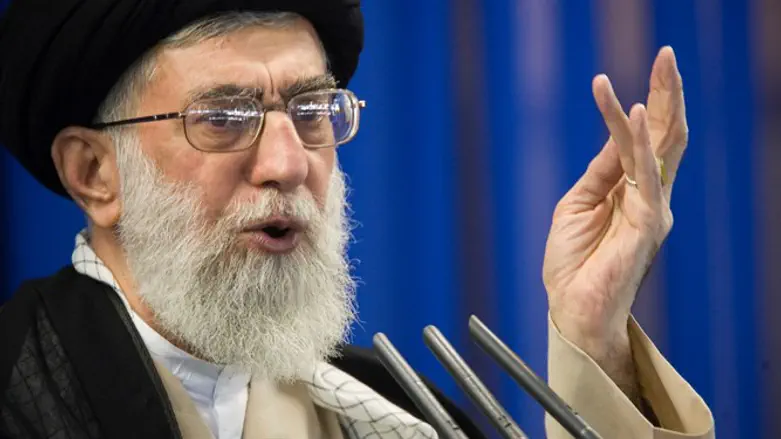
Iranian Supreme Leader Ayatollah Ali Khamenei on Wednesday claimed his country had foiled a "very dangerous" plot after violent demonstrations triggered by a fuel price hike.
The unrest erupted on November 15, hours after it was announced that the price of gas would rise to 15,000 rials per liter (12 US cents) from 10,000 for the first 60 liters, and to 30,000 rials for any extra fuel bought after that each month.
On Monday, Amnesty International said at least 146 demonstrators were killed across Iran since its leaders ordered security forces to stamp out protests.
Iran has blamed the unrest on "thugs" backed by its foreign enemies, including the US, Israel and the People's Mujahedeen of Iran, an exiled armed opposition group it considers a "terrorist" cult.
"The people foiled a deep, vast and very dangerous conspiracy on which a lot of money was spent for destruction, viciousness and the killing of people," Khamenei said on Wednesday, according to AFP.
The Supreme Leader was speaking at a gathering of the Basij, a loyalist militia which he advised to have a presence in all districts of Iran and to remain a step ahead of the enemy.
On Twitter, Khamenei expressed his "heartfelt gratitude and appreciation" to the Iranian nation in a post that featured pictures of a massive pro-government rally held Monday in Tehran.
"The people proved again that they are powerful and great, and defeated the big conspiracy of the enemy with their presence on the scene," he said.
"Police and security forces... performed their duty, but what the nation did during this week was more important than any other measure," said another tweet.
The tweets accused the "#GlobalArrogance and #Zionism" -- the US and the Jewish state -- of being behind the street violence.
Iran’s Revolutionary Guards have arrested about 100 leaders of the protests and said they would act to severely punish them.
Iranian Vice-President Eshaq Jahangiri last week warned regional countries of “dire consequences” if it is proven that they meddled to stoke unrest in Iran.
The United States, meanwhile, said it had received thousands of messages from Iran about protests after appealing to demonstrators to defy the internet restrictions placed by the regime during the unrest.
"We've received to date nearly 20,000 messages, videos, pictures, notes of the regime's abuses through Telegram messaging services," Secretary of State Mike Pompeo said, referring to the encrypted app.
Iran, which last year blocked voice calls on Telegram following the arrest of 12 people who ran popular reformist channels on the app, has yet to respond.
